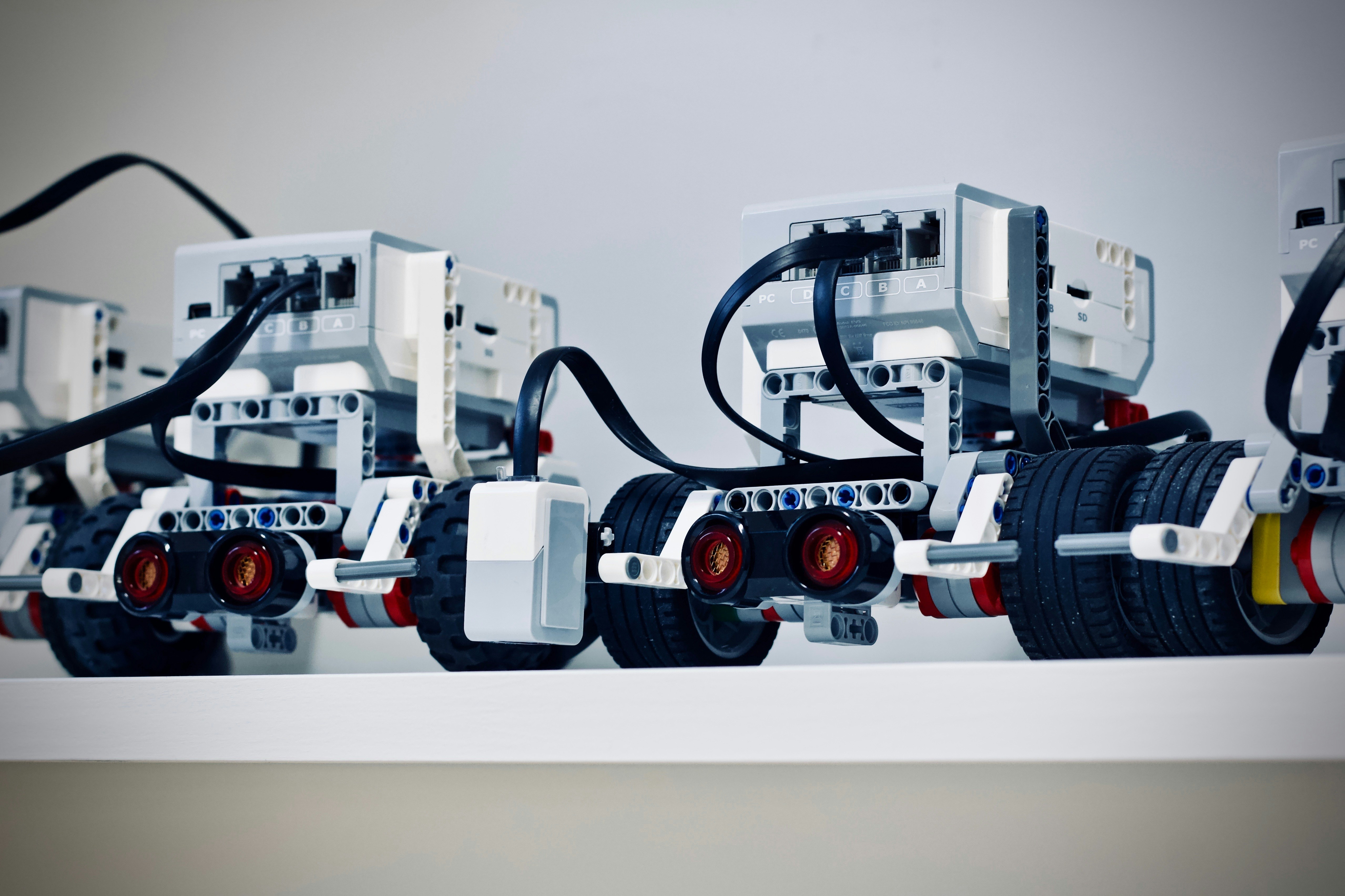Published on
Apr 16, 2025
-
min read

Robotics and automation are revolutionizing industries, driving efficiency, and fostering innovation globally. Germany, known for its leadership in engineering and manufacturing, offers some of the most advanced programs in robotics and automation. Whether your ambition is to work on intelligent robots, autonomous vehicles, or industrial automation systems, Germany provides the ideal academic and professional environment.
1. Global Robotics Hub
Germany leads the world in automation technology, with companies like KUKA, Siemens, and Bosch setting global standards.
The country’s focus on Industry 4.0 and smart manufacturing offers unmatched opportunities for students.
2. World-Class Universities
German universities consistently rank among the best in engineering, offering specialized programs in robotics and automation.
3. Hands-On Experience
Programs emphasize practical training, enabling students to work on real-world projects and gain experience in top robotics labs.
4. Affordable Education
Public universities charge minimal tuition fees, and scholarships like DAAD and Deutschlandstipendium make studying in Germany accessible.
5. Career Opportunities
Germany’s robust robotics and manufacturing sectors ensure abundant job prospects for graduates.
Top Universities for Robotics and Automation in Germany
Germany offers top-tier universities for robotics and automation, blending cutting-edge technology with practical application.
1. Technical University of Munich (TUM)
Program: MSc in Robotics, Cognition, and Intelligence
Highlights: Combines robotics, AI, and cognitive systems, preparing students for cutting-edge innovation.
2. RWTH Aachen University
Program: MSc in Automation Engineering and Robotics
Highlights: Focuses on industrial automation, robotic control, and advanced manufacturing technologies.
3. Karlsruhe Institute of Technology (KIT)
Program: MSc in Autonomous Systems Engineering
Highlights: Offers advanced knowledge in self-driving cars, drones, and intelligent robotics.
4. University of Stuttgart
Program: MSc in Mechatronics and Robotics
Highlights: Integrates mechanical engineering, electronics, and computer science for advanced robotics development.
5. Technical University of Berlin
Program: MSc in Automation and Robotics Systems
Highlights: Focuses on industrial applications of robotics and AI.
Core Modules and Specializations
Robotics and automation programs in Germany combine technical knowledge with managerial expertise to prepare students for complex roles.
Core Modules:
Robotic Kinematics and Dynamics
Artificial Intelligence for Robotics
Sensor Technology and Computer Vision
Autonomous Systems and Navigation
Specializations:
Industrial Automation: Enhance efficiency and productivity in manufacturing.
Human-Robot Interaction: Design robots that collaborate effectively with humans.
Autonomous Vehicles: Work on self-driving cars and drones.
AI and Machine Learning in Robotics: Develop intelligent systems that adapt to complex environments.
Many programs include research projects and collaborations with industry leaders like Siemens, ensuring students gain hands-on experience.
Admission Requirements
1. Academic Qualifications
Master’s Programs: A bachelor’s degree in robotics, engineering, computer science, or a related field.
2. Language Proficiency
English-taught Programs: TOEFL (minimum 80-100) or IELTS (minimum 6.5-7.0).
German-taught Programs: DSH or TestDaF certification.
3. Technical Skills
Proficiency in programming languages like Python, C++, or MATLAB is advantageous.
4. Additional Documents
Statement of Purpose (SOP): Highlight your interest in robotics and future aspirations.
Letters of Recommendation: Academic or professional endorsements.
Scholarships for Robotics and Automation Students
Germany offers several scholarships for international students pursuing robotics and automation:
1. DAAD Scholarships
Covers tuition fees, travel expenses, and living costs for eligible candidates.
2. Deutschlandstipendium
Provides €300 per month for high-achieving students.
3. University-Specific Scholarships
Institutions like TUM and RWTH Aachen offer merit-based scholarships for exceptional students.
Career Opportunities in Robotics and Automation
Graduates of robotics and automation programs in Germany can pursue careers in diverse industries like automotive, aerospace, and manufacturing.
Job Roles:
Robotics Engineer: Design and develop intelligent robots and automated systems.
Automation Specialist: Optimize industrial processes using robotics and AI.
Research Scientist: Innovate in AI, robotics, and autonomous systems.
Industries Hiring Robotics Graduates:
Automotive: Volkswagen, BMW
Aerospace: Airbus, Rolls-Royce Germany
Manufacturing: KUKA, Bosch
Average Salaries:
Entry-Level: €50,000 – €65,000 annually
Mid-Level: €75,000 – €90,000 annually
Senior Roles: €100,000+ annually
Living in Germany as a Robotics Student
1. Cost of Living
Monthly expenses range from €850 to €1,200, depending on the city, covering accommodation, food, and transportation.
2. Networking Opportunities
Attend industry events like Automatica and Hannover Messe to connect with professionals and stay updated on emerging trends.
3. Cultural Experiences
Germany’s mix of modern cities and historical landmarks offers a vibrant cultural experience for students.
Post-Graduation Pathways
1. Work Visa
Graduates can apply for an 18-month post-study work visa to secure employment in Germany.
2. Permanent Residency (PR)
After two years of full-time work, graduates can apply for PR, making Germany a long-term career destination.
Final Thoughts
Germany’s robotics and automation programs offer a unique combination of academic rigor, practical experience, and industry connections. Whether you aim to design intelligent robots, revolutionize industrial automation, or innovate in autonomous systems, Germany provides the ideal platform to launch your career.
Ready to shape the future of robotics? Start your journey in Germany today!

